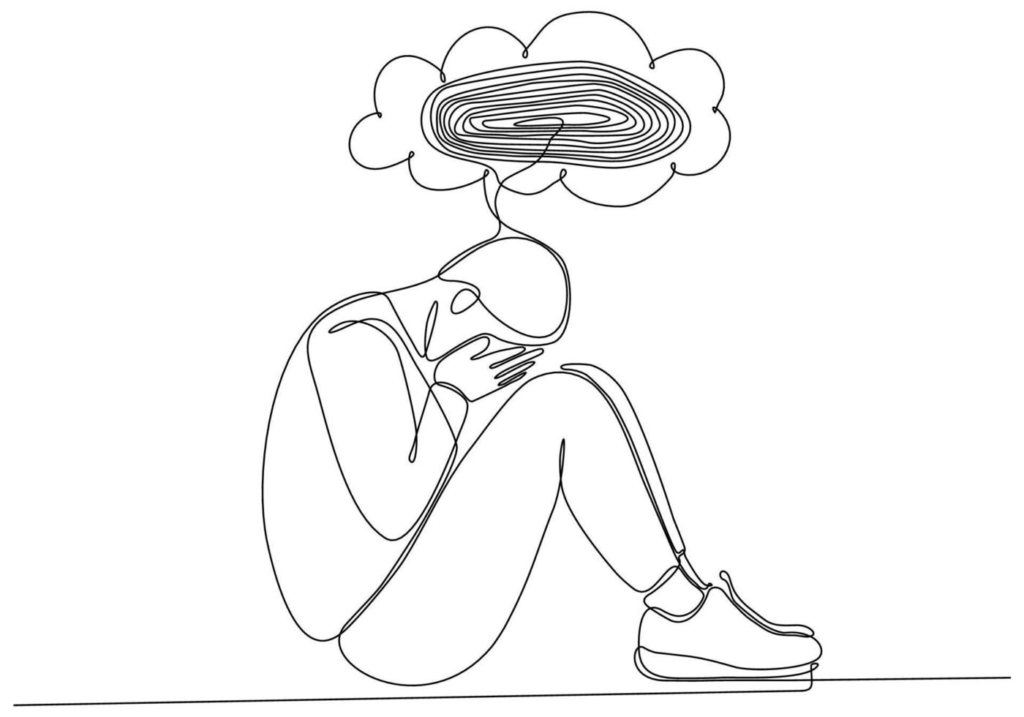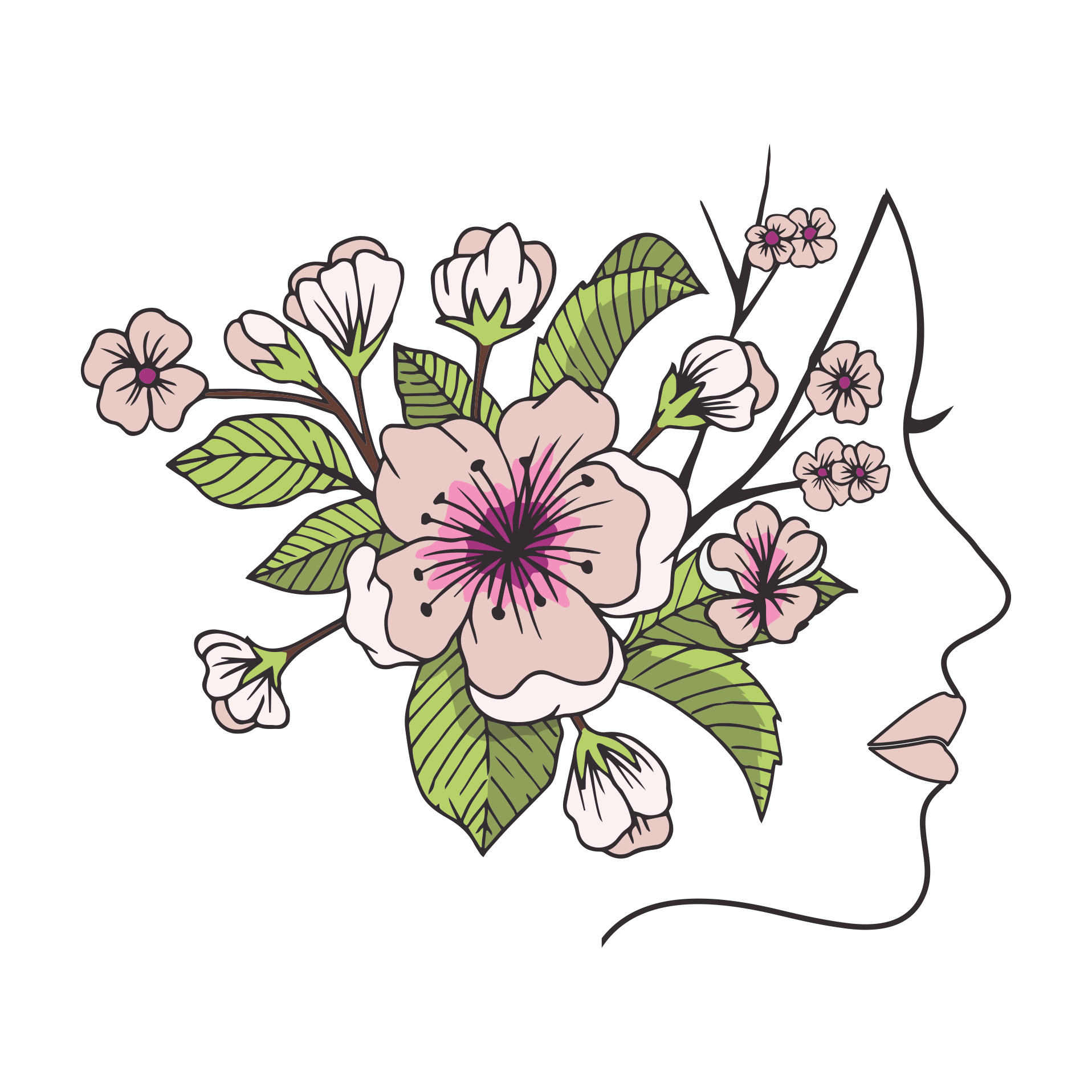
Currently, it is estimated that approximately 34% of the population will be impacted by an anxiety disorder at some point in their lifetime. This number continues to rise as individuals attempt to navigate the day-to-day stressors of their lives. These days it is not uncommon to hear people casually speak about persistent worry, intrusive thoughts, and intense overwhelm. However, anxiety can present itself in a variety of forms, with the 5 most common types being:
- Generalized Anxiety Disorder – An excessive worry even when there may be nothing to worry about
- Obsessive-Compulsive Disorder (OCD) – Repetitive thoughts and behaviors, such as cleaning, hand clapping, or picking at the body, that only go away temporarily once rituals are completed
- Panic Disorder – Unexpected and intense fear that manifests as physical symptoms like shortness of breath and chest pain
- Post-Traumatic Stress Disorder (PTSD) – Anxiety that develops due to a traumatic event or experience, leading to things like an intense distrust of others and nightmares
- Social Anxiety Disorder – A type of anxiety that arises in social settings, resulting in intense worry of being judged and self-consciousness
Although each of these types of anxiety display themselves in different ways, the commonality amongst each of them is WORRY. Worrying about the past. Worrying about the future. Worrying about socializing. Worrying about work. With all of this worrying it’s amazing that someone in this state of mind manages to accomplish anything.
How does this apply to late bloomers?
Remember…there is a reason why the late bloomer is “late” in life to begin with. As we have discussed, late bloomers often have experienced some form of trauma like bullying, neglect, abuse, or all of the above. Unresolved trauma from these past experiences can cause anxiety and other side effects to develop. Therefore, it shouldn’t come as a surprise that anxiety is common in late bloomers.
When left unchecked, anxiety can lead to late bloomers experiencing things like:
- Feeling extreme discomfort or fear of judgment and ridicule in social settings
- Pressure to be and look “perfect”, something we like to call perfectionism
- A limited social life, as lack of trust in others makes it hard to make and maintain new relationships
- Constantly worrying that “something” will go wrong
- Nightmares
- Irritability
- Failure to launch, as some become so overtaken by anxiety that they become stuck in their minds and unable to accomplish goals
- and more
Read the article Side Effects of Late Bloomers: The Good, The Bad, and The Ugly – Late Bloomer Chronicles where we discuss side effects in detail.
The Anxious Brain

What if I told you that if you deal with anxiety, your brain is also different? Yes, it is true, the brains of people who struggle with anxiety are different from the brains of those who don’t. That’s why when your friends, family, or partner say, “JUST STOP WORRYING SO MUCH!” it doesn’t work.
People who are highly anxious have brains that are more sensitive to stress, more than likely due to trauma. This sensitivity to stress leads to the brain becoming incorrectly wired, causing some areas of the brain to be smaller and others to be much larger in size than normal. As a result of this poor wiring and parts of the brain being the wrong size, anxious people may have memory issues, problems with regulating their emotions, in addition to the typical symptoms of anxiety we discussed above.
Think of the anxious brain like a badly wired house, the lights work, but they flicker.
Rewiring Your Brain
The good news is that we can re-wire our brains even as we age. This means we can stop the lights in our houses (or brains) from flickering as much, or even completely.
But how?… The brain can be re-wired primarily by one of two ways: with challenging new experiences or manually, with medications and drugs.
Re-wiring with challenging new experiences, looks like immersing yourself in activities to show yourself and your brain, that the old stories you’ve told yourself aren’t actually true. This is known as exposure therapy and in the real world looks like:
- Scared of heights? Go skydiving or bungee jumping
- Experience anxiety in social situations? Go out and initiate conversations with strangers
However, as you probably guessed, this is easier said than done depending on how severe your anxiety is. It’s hard to engage in new experiences that challenge your brain when your brain still has that same old faulty wiring. But this is where medications and drugs can come into play.
Psychedelic Drugs

You’ve probably heard of traditional medications like Xanax which temporarily relieve anxiety, however, research is showing that small doses of psychedelic drugs like Magic Mushrooms (psilocybin) and Ecstasy (MDMA) are more effective in the treatment of anxiety.
How do they work? In general, psychedelic drugs increase neuroplasticity, making it easier to manually re-wire the brain. This re-wiring leads to permanent changes that can reduce, or even cure anxiety, for months and years as areas of your brain become restored to their healthy size and function.
Additionally, psychedelics temporarily disconnect the mind from the body. This disconnect can give you the opportunity to experience your body without the anxiety from your brain taking over. Imagine how much easier it will be to put yourself out there, to get tasks done, or try new things without the worry of your brain spoiling it.
Lastly, psychedelics create a state of temporary euphoria. In this euphoric state you are uplifted, bold, and it allows you to complete tasks that normally would trigger your anxiety with confidence. It’s like liquid courage, in a pill, but more permanent.
Psychedelic drugs ‘may improve depression, anxiety, and PTSD’ (medicalnewstoday.com)
Mental Exercises You Should Try for Anxiety
We understand here at Late Bloomer Chronicles, that the idea of taking a drug can be intimidating. That is okay. You can still put yourself in a temporary euphoric state using intense exercise and/or yoga. However, whether you accomplish this euphoric state by way of exercise or with psychedelic drugs you must challenge your mind’s way of thinking to overcome anxiety. You can do this by:
1. Consistently imagining yourself in the scenarios that bring you fear.
While in a state of euphoria, imagine yourself in the situation that brings you fear. Our imaginations are very powerful, so by mentally recreating the situation that triggers your anxiety you can cause various physical symptoms of anxiety to appear in your body as if it were the real deal. These physical symptoms are things like tightness of breath and clenched hands. Pay attention to how your body reacts in these imaginary scenarios and practice releasing this tension. Breathe slowly in and out. Relax your shoulders and jaw. Unclench your fists.
Overtime you will notice that because you have practiced this in your mind, you will become more aware of when your body is in an anxious state in the real world. Therefore, when a trigger occurs, you can put into practice naturally relaxing your body using your breath until the physical symptoms disappear.
2. Challenging your anxious thoughts.
Have you ever taken the time to truly reflect on how irrational your anxious thoughts can be? The next time you feel anxious, ask yourself if the worry you’re experiencing is something that realistically may occur. You can even share these worries with friends and let them assist you in disproving your irrational thoughts. In practice challenging your anxious thoughts can look like asking yourself:
- Am I in a safe environment?
- Is the worry that I have something that could actually happen RIGHT NOW?
- You can even go as far thinking the worst possible outcome and remind yourself that you will survive if that situation were to occur.
- For example, let’s say you fear public embarrassment. Think to yourself the worst possible scenario, odds are you will realize that although this may bring you extreme discomfort, you will survive.
3. Meditation
Learn to breathe through anxiety. Meditation is a great tool as it can teach you to become aware of your thoughts. Once you are more aware of your thoughts you can learn how to release the thoughts that no longer benefit you. You can find many guided meditation sessions on YouTube. My personal favorite is the Meditation Mixtape by Shelah Marie.
4. Change your life
Sometimes you’re anxious because there are aspects of your life that need to be changed. Are you hanging in social settings where you feel you are unable to be yourself? Is work preventing you from being able to take care of your health? You may need to consider setting goals to change the things you can. The article How to Prepare to Achieve Goals – Late Bloomer Chronicles will be a great help.
Overall, understand that moments of anxiety are normal. It is only when this anxiety prevents you from achieving the life you ideally want for yourself that it can become problematic. Therefore, when it comes to anxiety, the goal is not to get rid of it forever, but rather to learn how to manage it and release it so that you can live a full and fulfilling life.
Until next time.
Later bloomers!



Great read!
An interesting discussion is definitely worth comment. Theres no doubt that that you should write more on this subject, it may not be a taboo subject but generally people do not speak about such subjects. To the next! All the best!!
Cool + for the post